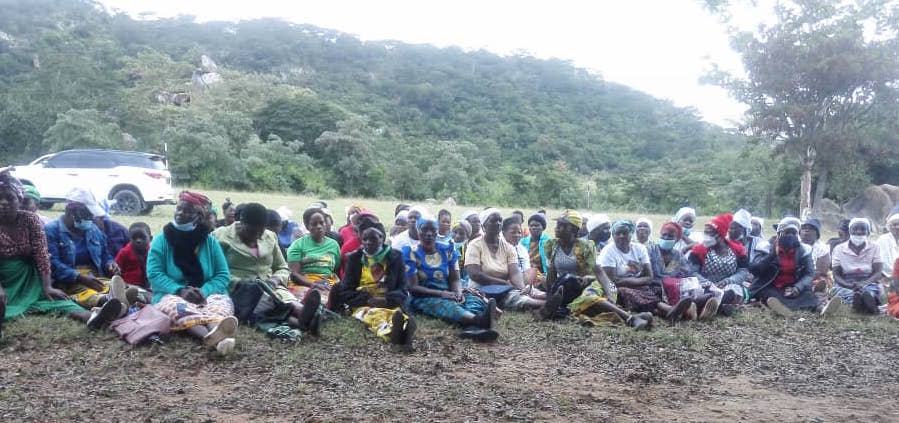|
Getting your Trinity Audio player ready...
|
By Clayton Masekesa
Hot Springs – The Zimbabwe Republic Police (ZRP) on Friday stopped a Manicaland Provincial Mining Indaba that was scheduled to take place at Hot Springs Roman Catholic church alleging that the organizers of the event had not followed the correct procedures regarding the clearance of the meeting.
Members of the Police Internal Security and Intelligence (PISI) from Nyanyadzi stormed the meeting when it was about to start and ordered the organizers to immediately stop the meeting.
Zimbabwe Environmental Law Association (ZELA), Zimbabwe Coalition on Debt and Development (ZIMCODD), and Zimbabwe Council Of Churches (ZCC) organized the indaba.
Community-based organizations and stakeholders from Penhalonga and Marange where mining activities are taking place had gathered for the meeting when police swooped on them.
Some of the community-based organizations included Zivai Community Empowerment Trust (ZICET), Arda Transau Development Trust (ARDT), Chiadzwa Community Development Trust (CCDT), Marange Diamond Trust, Zimbabwe Diamond Allied Workers Union (ZIDAWU), and SOCONET among others.
Stakeholders included District Development Coordinators, senior local government officials, Ministry of Mines representatives, Zimbabwe Miners Federation officials, churches, traditional leaders, and the media.
Small and Artisanal Miners were also present.
Manicaland Provincial Spokesperson, Norbert Muzondo, professed ignorance on the banning of the meeting.
“I am not yet aware of that (stopping the meeting). I do not have any information regarding that issue at the moment,” said Muzondo.
Addressing the organizers of the meeting, a police officer who cannot be named for protocol reasons said: “We are here to inform you that I have a directive to stop this meeting because we have information that you did not follow the correct procedures in seeking clearance for this meeting.”
Efforts by the organizers to have an audience with senior police officers in Nyanyadzi hit a brick wall, as the officers said they were following instructions from their superiors from the provincial police headquarters.
Investigations by this reporter revealed that the stoppage of the meeting was enforced by the President’s Office which claimed that the meeting was being held in a protected area.
Through some text messages seen by this reporter, some officials from the President’s Office insisted that the meeting should not take place, as it was being held at an inappropriate period.
An insider said: “These meetings are highly sensitive. Another fact is that it was being held at Hot Springs, which is a protected area. We know that such meetings are explosive as there will be sensitive issues raised. Mining issues are currently very sensitive, so there was no way that meeting would have been cleared.”
A member of the organizing committee insisted that they had followed all the procedures.
“I do not know which procedures they are talking about. We have been doing this over the years and we wonder what has gone wrong now. We followed all the protocols, but, it is sad that the meeting has been stopped,” said the member of the organizing team.
The community-based organizations that represent the villagers and members of the community where the minerals are being mined have been vocal in claiming that the communities have been pushed to miserable poverty.
They also maintain that communities have been neglected by both the government and the mining companies operating in the diamond soils, as it has become an emotional reality that they have been secluded from the minerals that they were supposed to benefit from.
The meeting in Hot Springs just came soon after the launch of a new report by the Centre for Natural Resource Governance (CNRG) titled Zimbabwe’s Disappearing Gold: The Case of Mazowe and Penhalonga, which claims that Zimbabwe is losing at least three tonnes of gold valued at US$157 million monthly through illicit financial flows.
CNRG said Zimbabwe is losing that amount through siphoning by influential Zanu PF politicians, government officials, and their close business associates.






